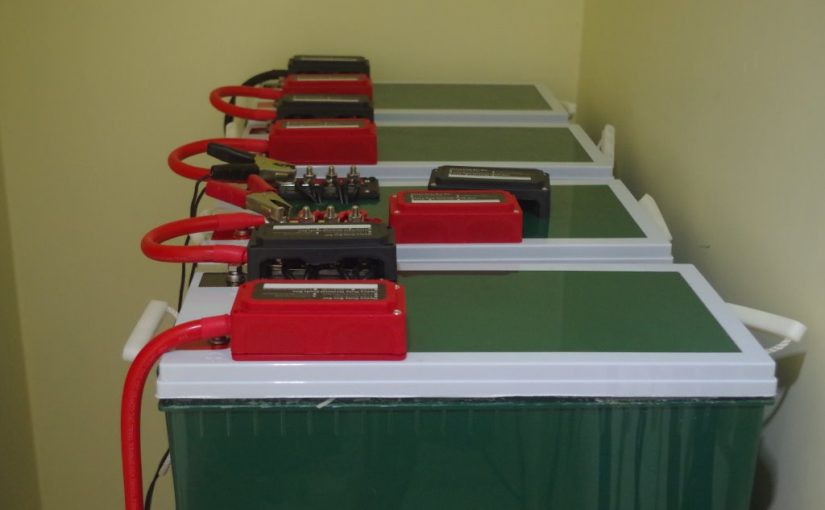Went to purchase a sack of locally grown potatoes at a farm gate the other day. The sun shone. Warmth pressed upon the skin. Grasses had begun to yellow. The scent of dry and dusty soil. Cicadas called rhythmically. Warm air filled the lungs. The shade of an old elm tree, an invitation to linger. We parked the car at the farm gate. The shed door was closed and locked. Unusual.
For the first time I can recall, the farm gate was shut and the produce signs were removed from prominence. They were stored away in a different place. The shed didn’t look like it was going to open again any time soon. The bloke who ran the farm was always old. Guess he just got older. He used to regale me with tales of the various established families in the area, once he knew where Sandra and I lived. Oh, do you know the … family? Then he’d begin the tales.
The old bloke outlived the folks he spoke about too.
The house on the farm had the air of history about it. Looked settled in its place, with big old elms and paddocks of potatoes. I’d always assumed he’d made his mad spending cash by selling potatoes by the sack to locals. And locals turned up to buy the potatoes. A nice arrangement. Looks like potatoes by the sack are now going to have to be purchased from elsewhere, which everyone knows is further away.
A local history book mentioned that the mountainous area where Sandra and I reside was historically used to grow berries and potatoes. For a fact, both plants grow well in this climate. But we don’t grow enough of either plants to consider ourselves self sufficient.
Seems as though the past eighteen years we’ve observed one local farm gate after another shutting up shop. Probably doesn’t make much economic sense to sell produce at a farm gate. And if a farm has debt, the problems are compounded. Thinking back on the years, most of the farm gate businesses were run by old timers. A few of them told me candidly that their kids had no interest in continuing the farm and were looking to sell the property. Guess the land itself mysteriously makes more mad cash, for less work than farming.
The closure of the potato farm gate was just another episode in the long downwards decline. There used to be two local cherry farms, now there is one (which incidentally is run very well by new younger owners). Of the two blueberry farms, only one ever sold at the farm gate, and that closed long ago. Strawberries, tick, done. Cherry tomatoes, now they were something special, and just like Pavlov’s dogs passing the now closed farm gate still makes me salivate – even today. The stone fruit orchard to the north was one of the earlier contacts we made, I can’t understand what’s going on there now. The old hippy couple living way out in the forest sold some of the best honey around, their sign was removed from the road a few years back. Loss. Loss. Loss.
Other than the local cherry farm, I don’t see too many people trying to supply produce to locals. Heck, we don’t either – it makes little economic sense. But every time a local produce farmer shuts up shop, we consider the consequences and begin to implement systems to replace what has been lost to us. It’s not an easy task, and often it takes time, a whole lot of time and effort. After all, a fruit tree can take a decade or more before becoming reasonably productive.
We’re trying to work out the balance between setting up new systems, repairing old ones, and maintaining others. There’s no right way to go either. You just have to pick and choose something, and hope you don’t mess things up royally!
The other day we planted out five new varieties of citrus trees. Planting the trees out didn’t take long. However, cleaning the grass away from the trunks, pruning, feeding and watering each of the thirty or so trees in that part of the property did take a while. Still, as an old timer once said: The best time to plant trees is a decade ago. Good advice.

And things don’t always work out. The batteries in the power system for the house have been giving me a lot of headaches recently. For those readers who are new, the battery terminals were running hot enough that you’d burn your fingers if left in contact with them for too long. That is a fire risk which I was uncomfortable with.
The problem was investigated. Then a plan was made to correct the issues with the batteries. The parts were ordered and they arrived Tuesday. By Thursday the first battery was modified. The work was very dangerous. Fortunately we were careful and survived the work.
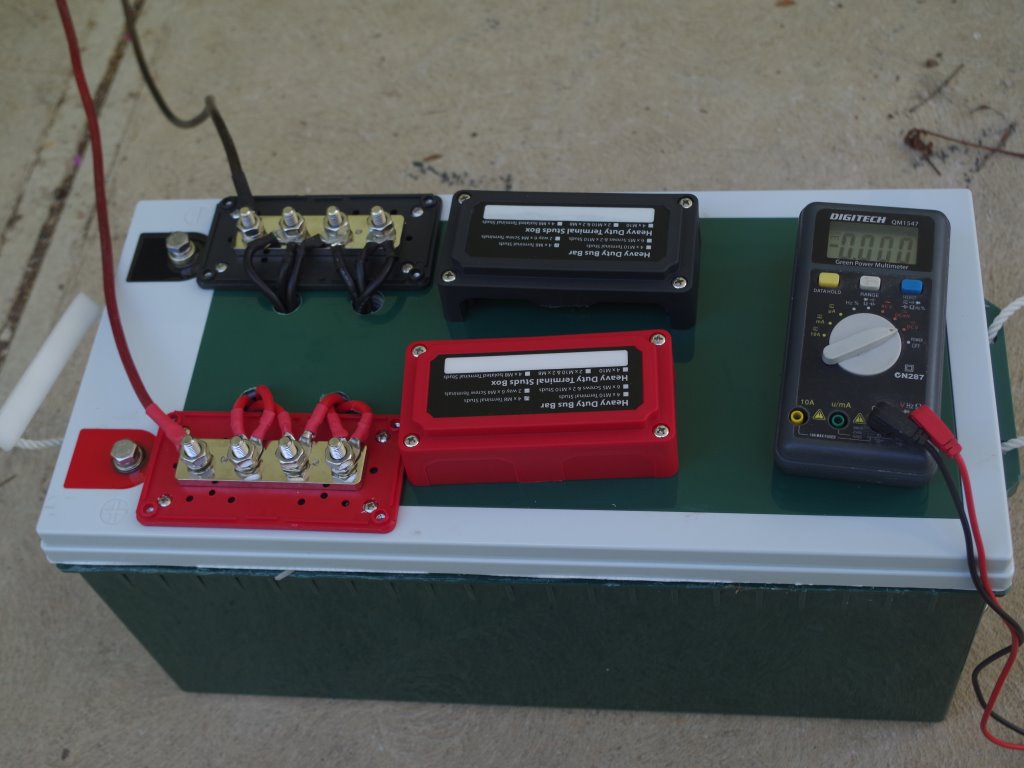
By late Saturday evening, the last of the batteries had been modified.
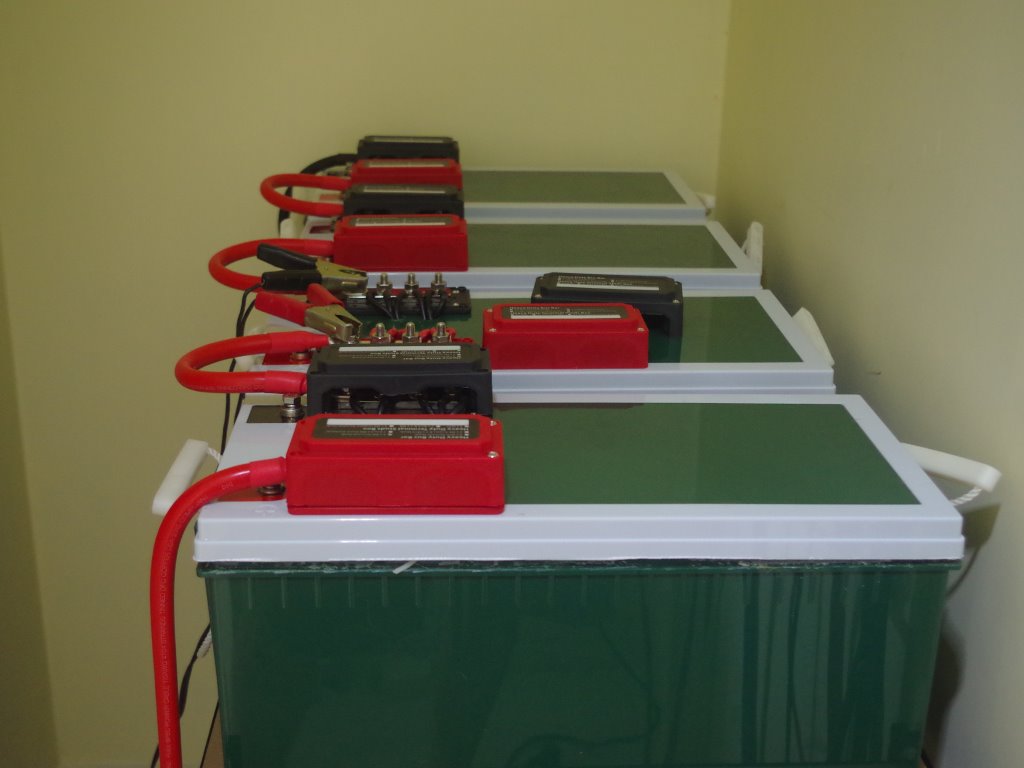
Some jobs are harder than others, and the work on the batteries produced some serious sweat due to the inherent risk of say, explosion. It’s done now, but I can understand why people would prefer to earn mad cash doing nothing other than simply owning property and watching the value increase. Doing actual stuff, by way of contrast, makes little economic sense.
At least the summer weather did finally appear this week.
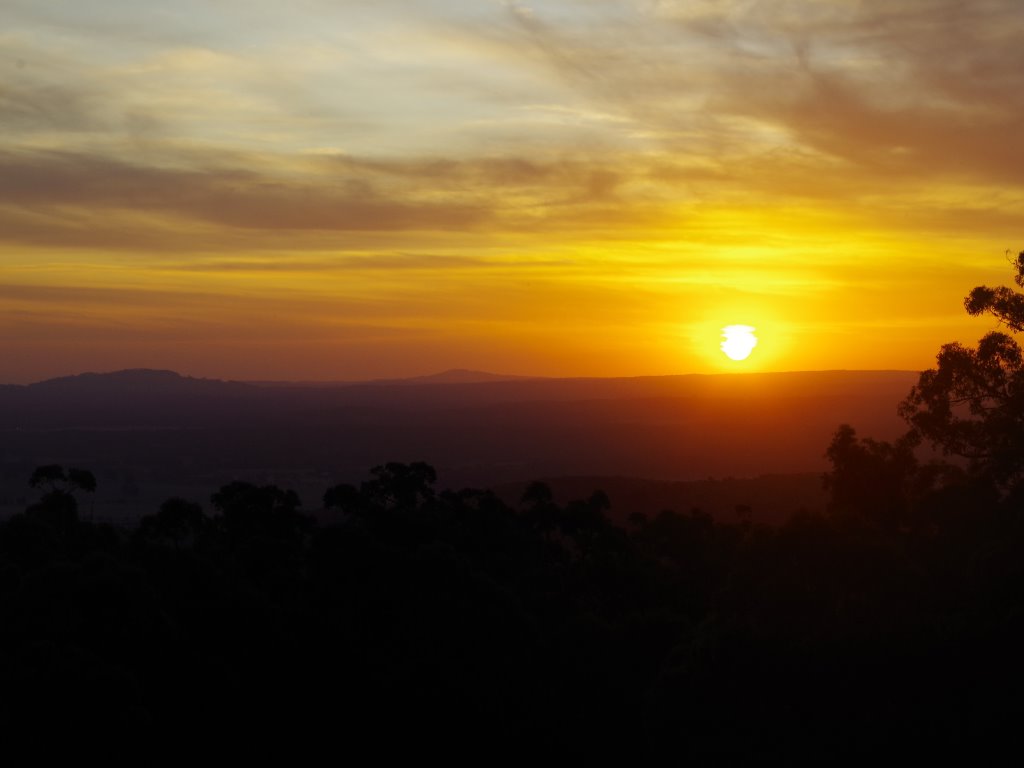
Fortunately not all of the work we do around here is dangerous. Some of the work just makes the place look more attractive. There’s no reason why a farm shouldn’t look pleasing to the eye. Earlier in the week, the garden terrace project – which had been done over several years was completed. The final bit of fencing was finished.

Long term readers will know by now that there are regular jokes about reaching Peak Rocks. They’re not really a joke because we actually are at Peak Rocks. There are still some rocks to be had, but they have to be lifted from the paddock and/or split. However, old timer farmers would know that removing rocks from paddocks is an investment in the future. As well as removing rocks from the paddocks, we’ve also had to tackle cleaning up the left over mess from the century or so of logging operations. That’s likewise an investment in the future, not to mention serious hard work. A tree stump grinder may do most of the work, but hanging onto that machine for a few hours is no easy ride either. And neither is knowing how to maintain the machine so that it grinds the long dead hardwood effectively.
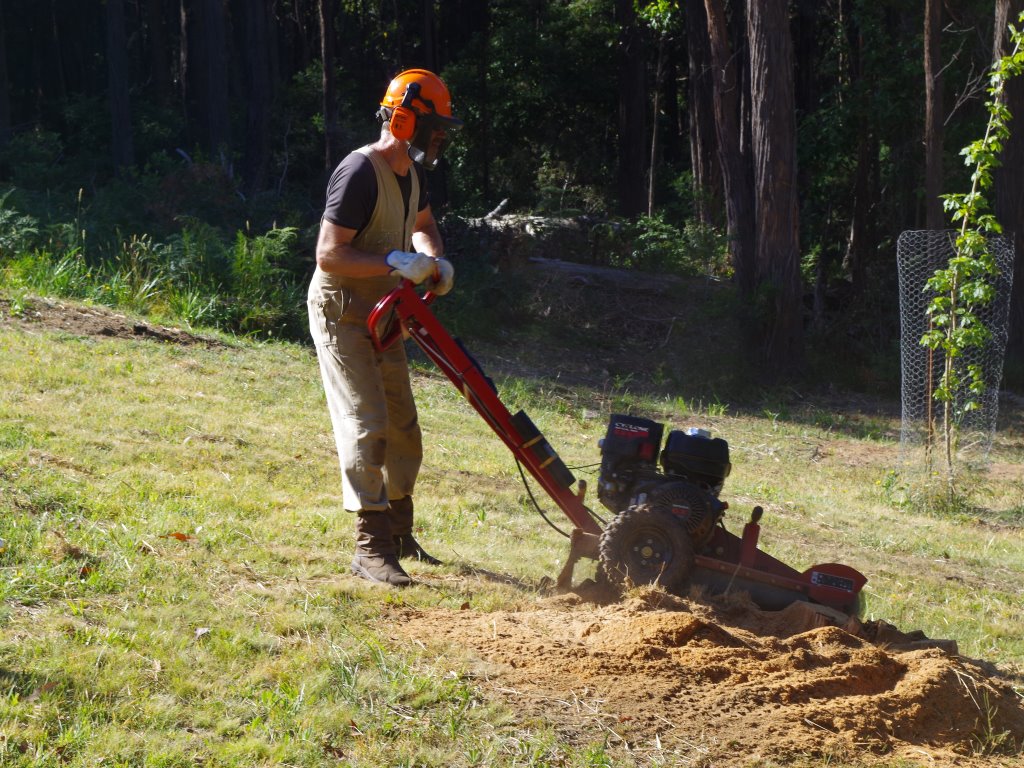
Each year the farm produces a little bit more than the year before. And this requires us to know a bit more about everything here each year. As one example, the new larger greenhouse has been a real game changer. Most of the seedlings were raised in the greenhouse.
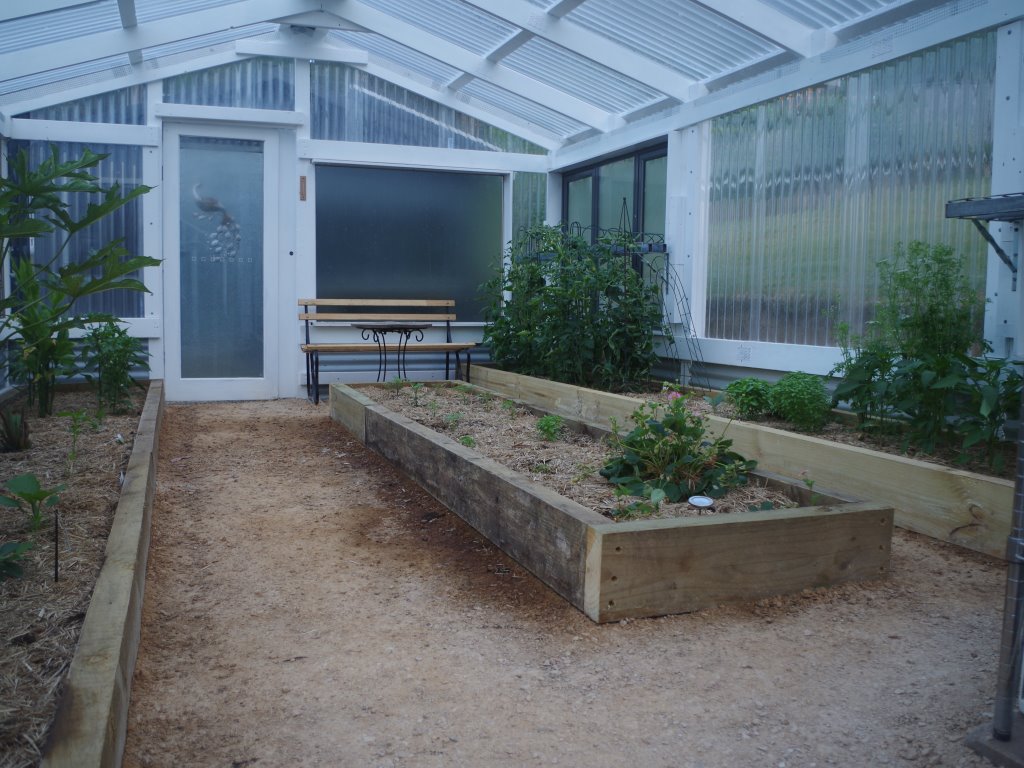
This year was the second wettest year in recorded history. It was also a very cold spring and early summer, thus slowing the growth of many of the plants and wiping out a lot of the blossoms in the orchard. Yet in the new greenhouse, we already have quite good looking chilli’s.
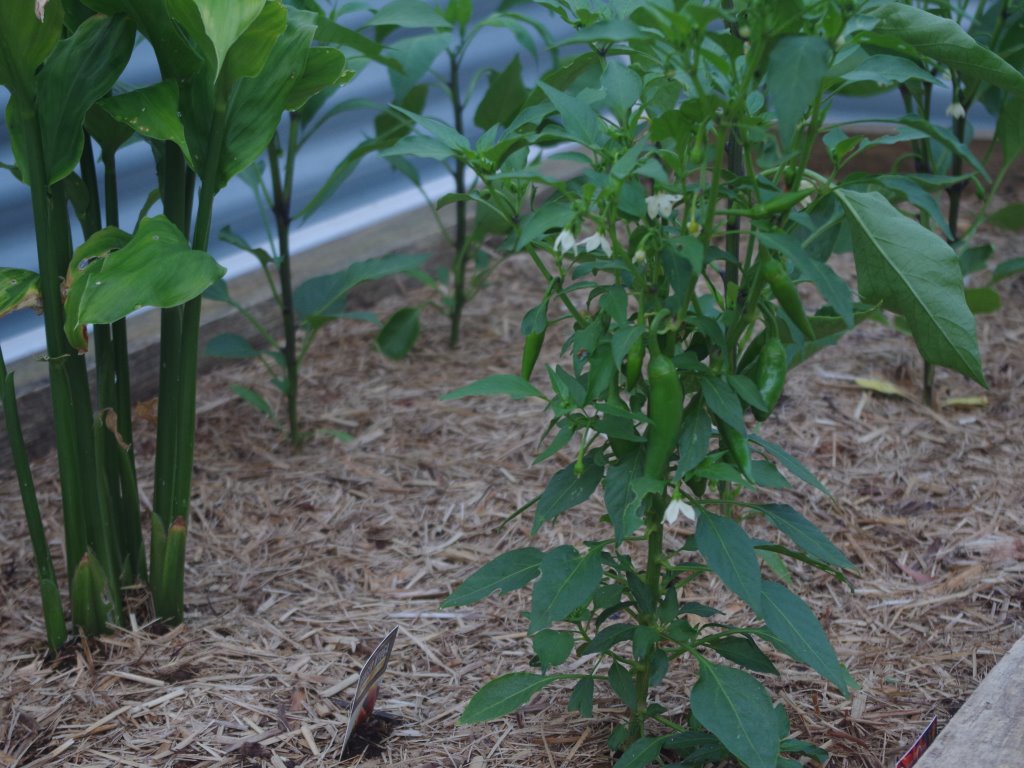
There are also unripe large tomatoes in the greenhouse (thanks to a plant donation from a mate – you know who you are!) The tomatoes outside in the old sapling fenced enclosure are growing well, but not as strongly as those in the greenhouse, despite being raised in there as seedlings.
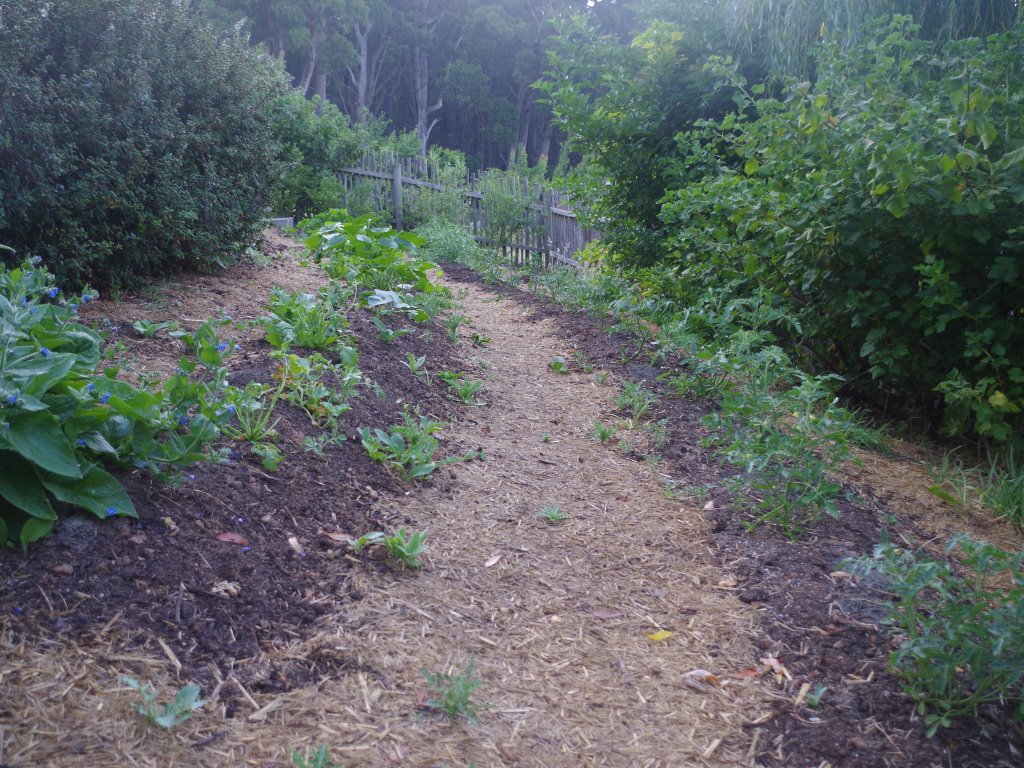
The recent hot weather has sped along the growth of the zucchini / courgette plants, and there are even some small fruit developing.
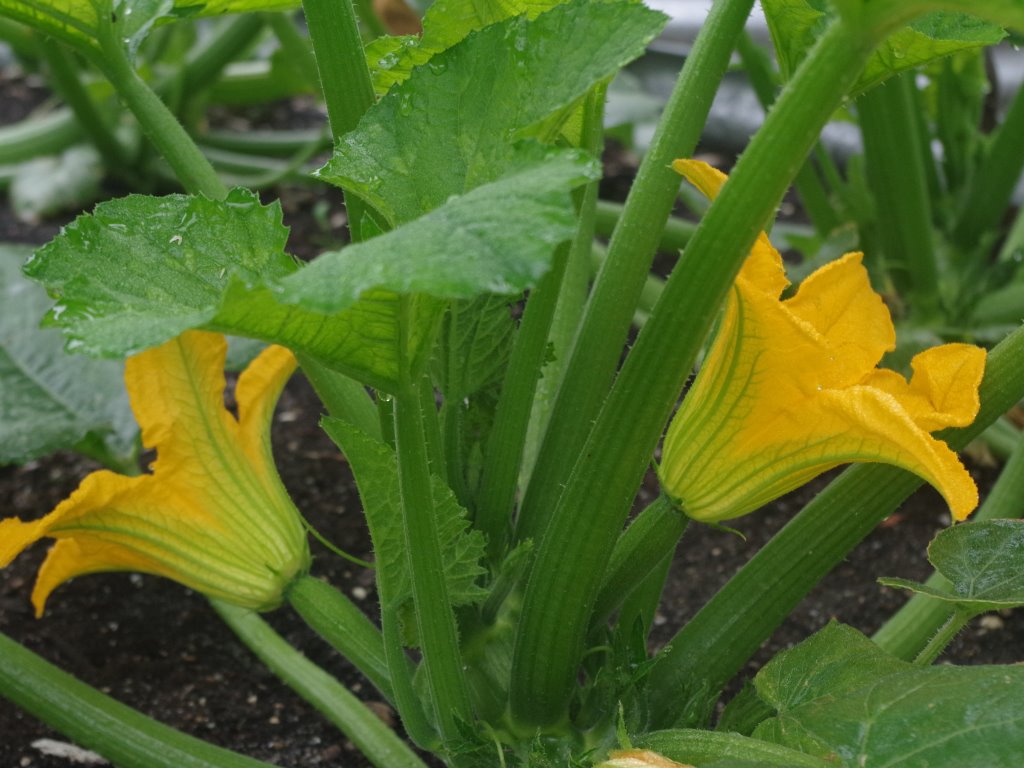
Due to the cold and wet spring and early summer, only the apples and pears are really producing well . The local birds are thinning the fruit, and this is no bad things because the trees will put their energies into the remaining fruit, of which there are hundreds.
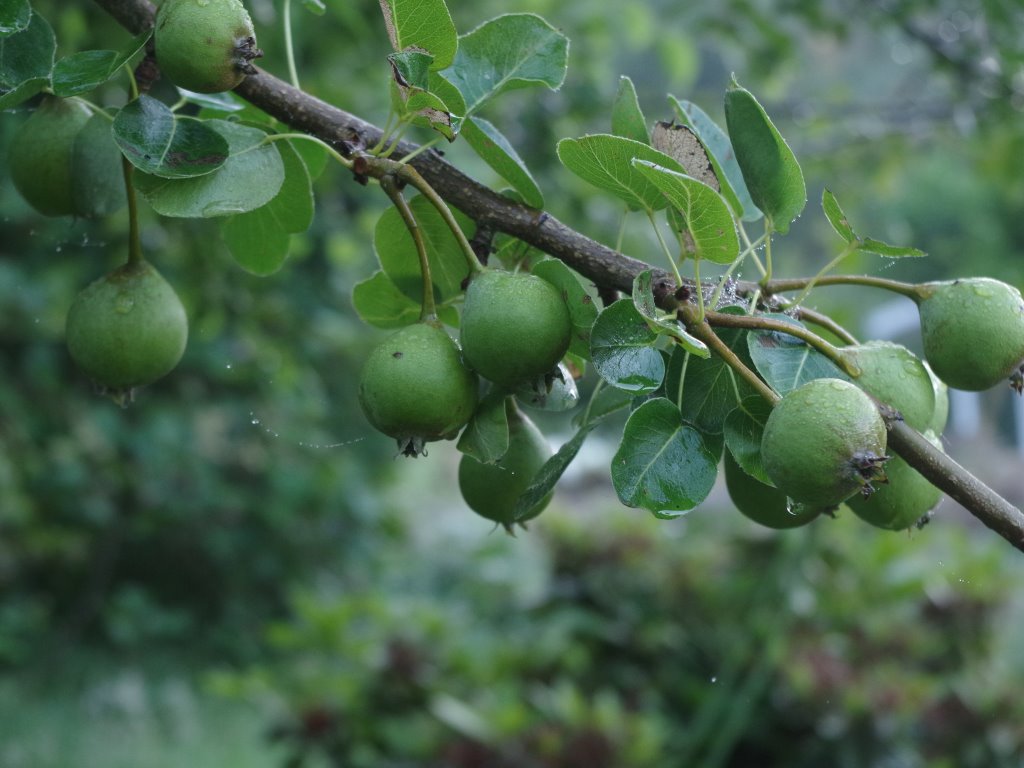
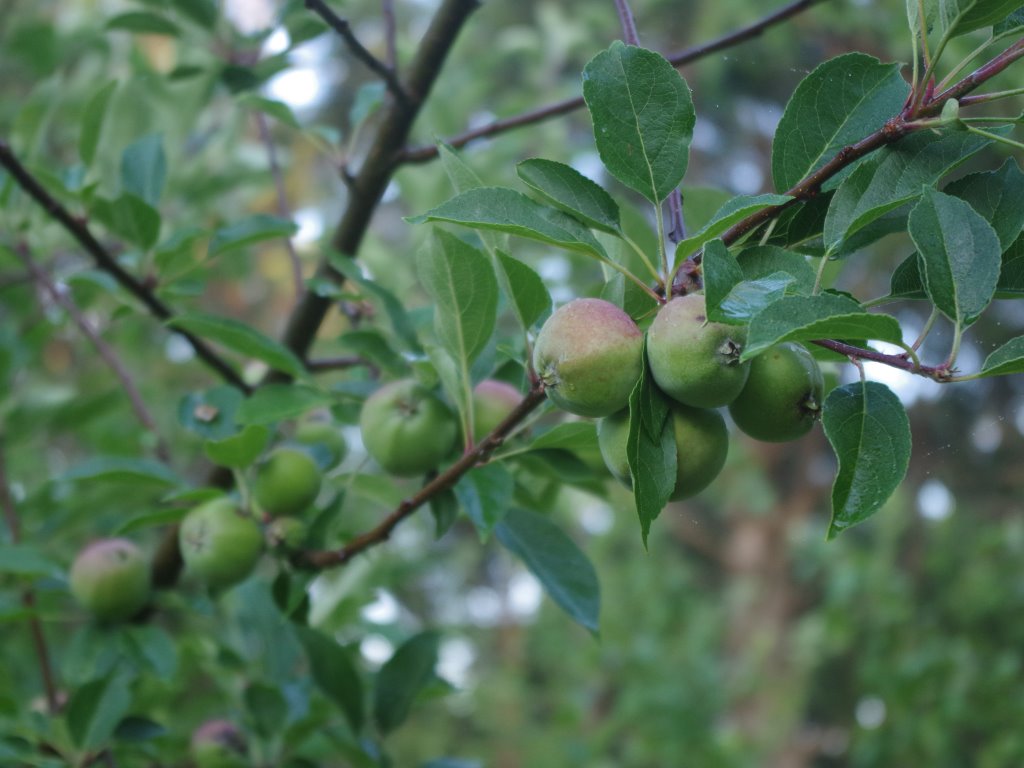
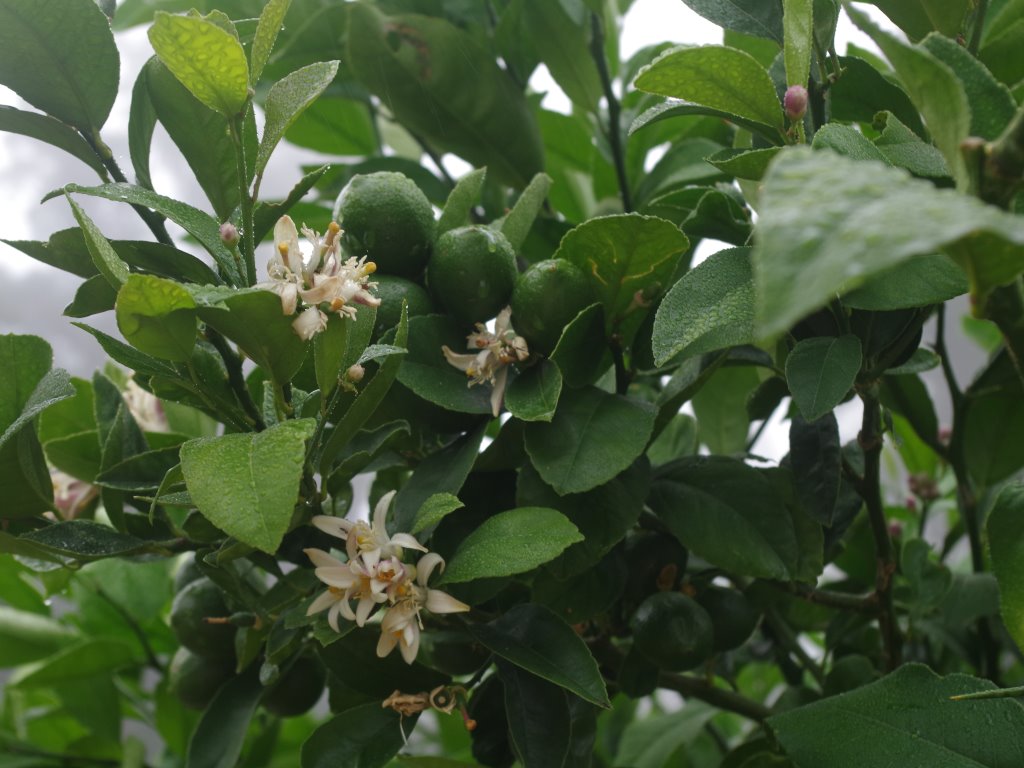
In cold and wet years the late blossoming fruits generally do well. The Kiwi Fruit vines flower very late in the season, and thus avoid late frosts.
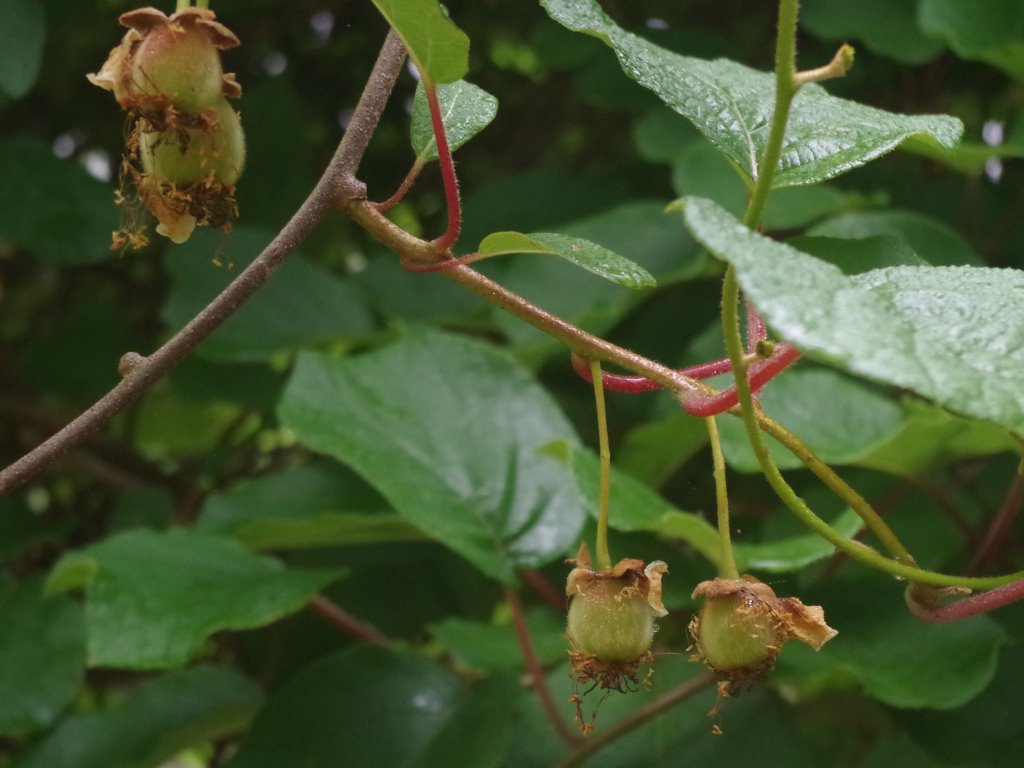
Onto the flowers
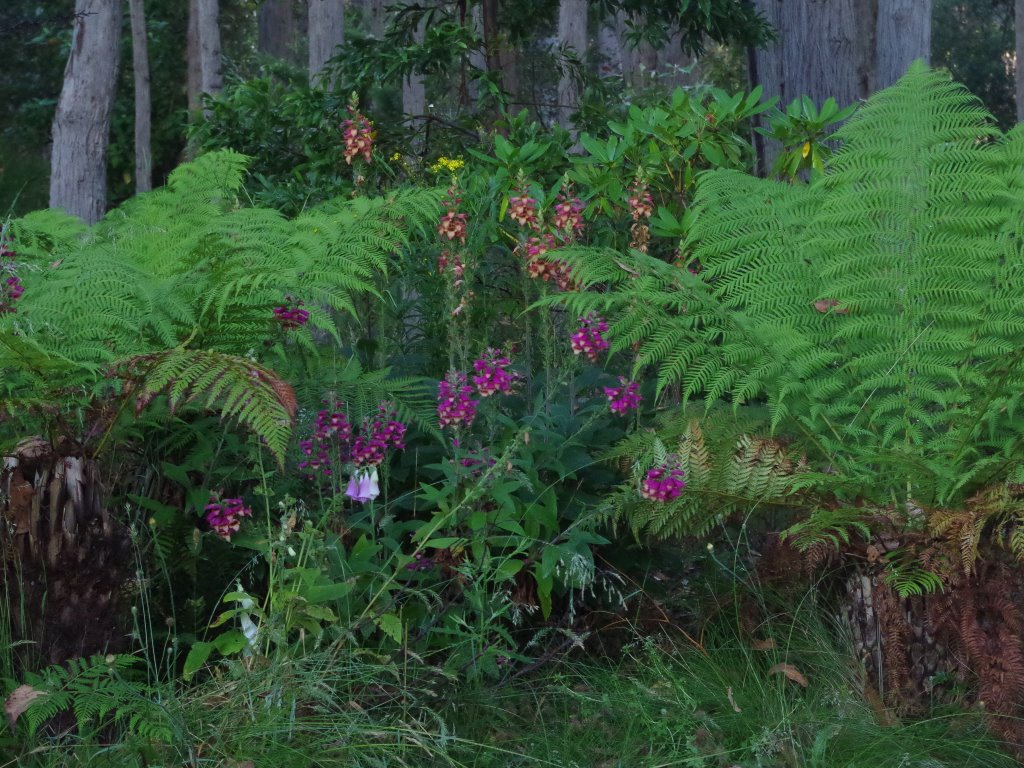
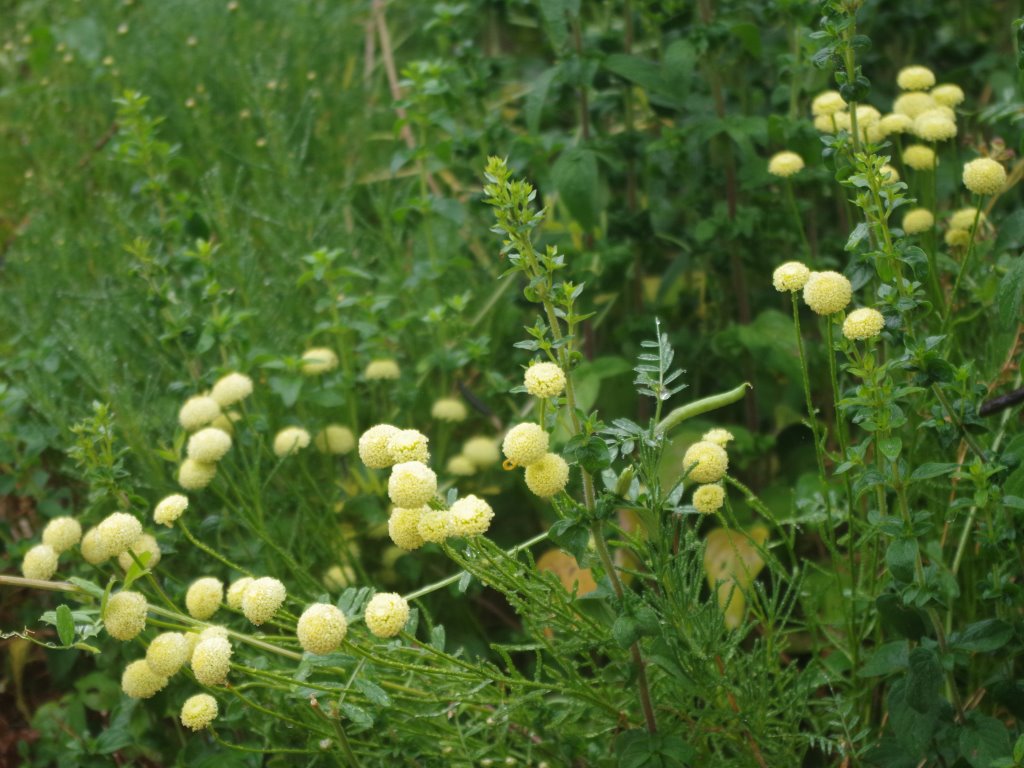
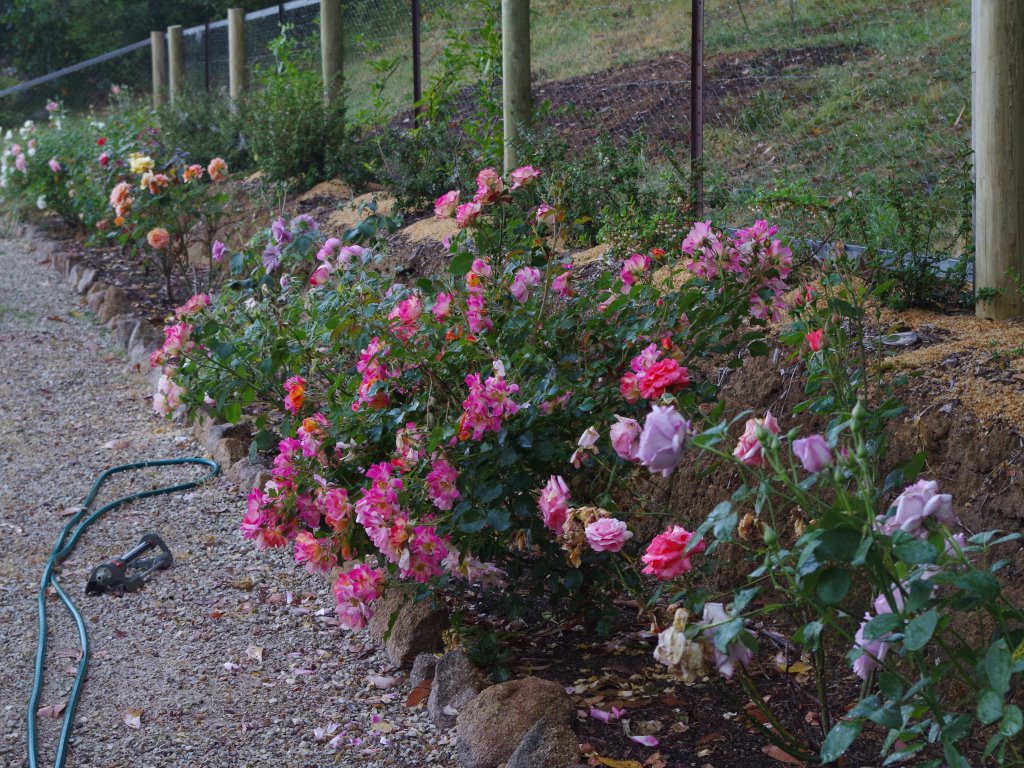
The temperature outside now at about 9am is 14’C (57’F). So far this year there has been 12.0mm (0.5 inches) which is up from last weeks total of 11.0mm (0.4 inches)
